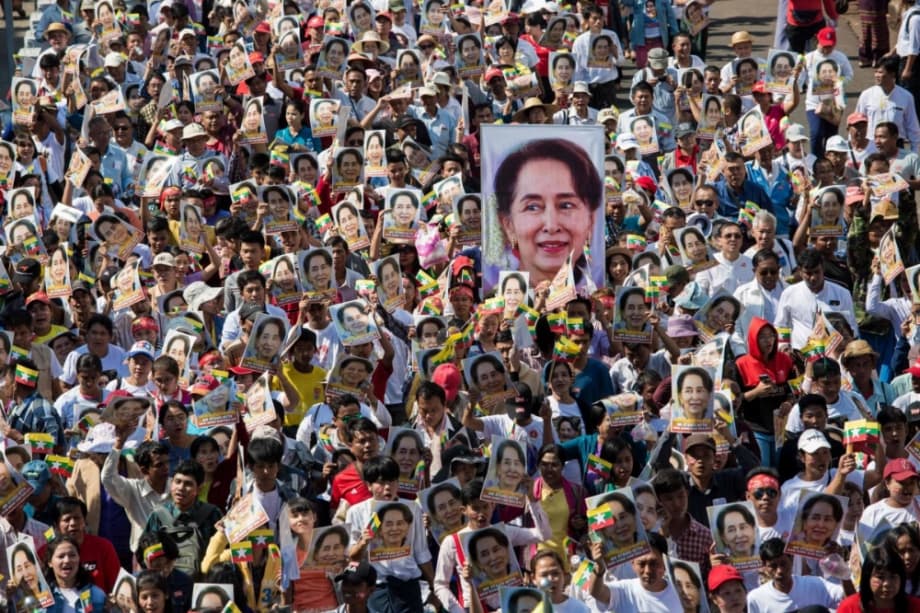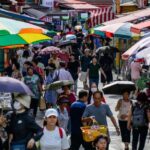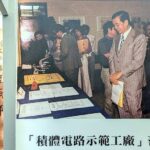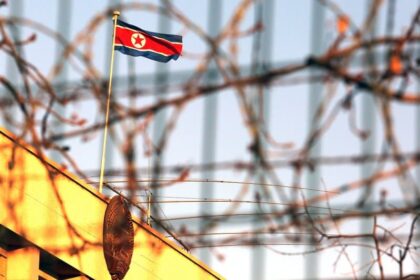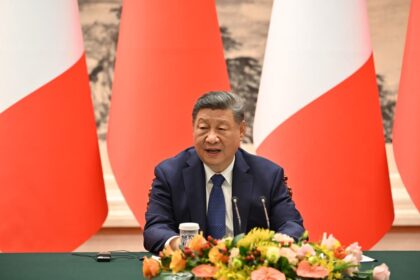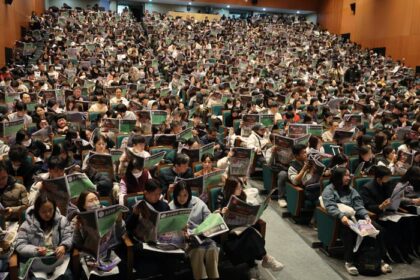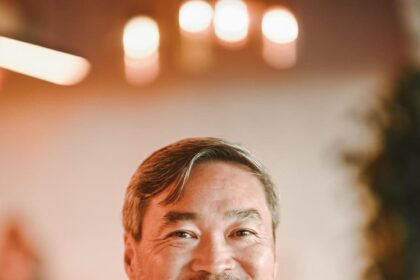An 80th birthday marked by silence and steel doors
Aung San Suu Kyi turned 80 on June 19 in detention, nearly four years after Myanmar’s army seized power in February 2021 and removed her elected government. She is serving a 27 year sentence on a stack of convictions for corruption, election offenses and breaking pandemic rules. Rights groups and many governments call the cases political. She is held in effective solitary confinement in a special facility in Naypyidaw, with contact limited to rare controlled interactions. Since her arrest, only a single letter known to be from her reached her younger son.
- An 80th birthday marked by silence and steel doors
- How Myanmar returned to military rule
- Inside a life cut off from the world
- Health fears grow after earthquake and years of isolation
- Supporters find new ways to be heard
- A nation at war with itself
- Her complicated legacy abroad
- What the junta wants and fears
- International pressure and what could change
- Key Points
The woman who symbolized Myanmar’s opening after decades of military rule rose to de facto leadership after her party’s landslide in 2015 and won again in 2020. The 2008 constitution blocked her from the presidency because of her late husband’s and sons’ foreign citizenship, so she served as state counsellor while the generals kept control of the security ministries. When soldiers moved again in 2021, she was detained and put on trial in closed hearings that the United Nations and several Western governments condemned as a sham.
Her milestone birthday passed without public celebrations in cities under military control. In pockets of the country held by resistance forces, small rallies and flower tributes appeared. Thousands of supporters inside Myanmar and abroad recorded birthday greetings and sent them to an online campaign seeking a world record. Organizers say the total passed 100,000 messages, a sign of continued devotion to a leader who remains a powerful symbol despite long isolation.
The generals have tried to erase that symbol. Local reports of arrests for simple birthday posts showed the risks of even mild dissent. Still, her image and name surface in street protests, in monasteries and churches, and in donations to displaced families. Her story is bound up with the country’s struggle, and the stakes around her fate reach far beyond a prison wall.
How Myanmar returned to military rule
The roots of this moment lie in a controlled transition that began around 2011 when the military wrote a new constitution and opened space for political parties, investment and media. The charter reserved a quarter of parliament seats for officers and gave the army command of the defense, home and border ministries. Aung San Suu Kyi’s National League for Democracy won elections in 2015 and again in 2020 by wide margins, but the system left the generals with a veto over core security decisions.
On February 1, 2021, the army swept aside the 2020 result, detained the civilian leadership and declared a state of emergency. A cascade of cases followed. Courts convicted Aung San Suu Kyi of corruption, election violations and breaking emergency health rules during the pandemic. In 2023 the junta announced a partial pardon, trimming her total from 33 years to 27 years. Former president Win Myint, arrested the same day, received similar treatment. Both remain cut off from family and most of their legal counsel.
A legal process designed to sideline an opponent
Trials took place inside a compound in Naypyidaw, using a prefabricated courtroom with judges and prosecutors aligned with military authorities. A defector group known as People’s Embrace later shared video clips from 2022 that show Aung San Suu Kyi beside Win Myint during hearings. The United Nations, the United States and the European Union called the proceedings political and urged her release, a demand the junta has ignored.
Inside a life cut off from the world
Leaked prison logs covering days in early 2024, reviewed by people familiar with her detention, describe a rigid routine behind high walls. Her day reportedly begins at 4.30 am and ends around 8.30 pm. She meditates for more than an hour each morning, reads for long stretches and walks circles in her room for exercise in the evening. She uses Buddhist prayer beads throughout the day. She receives newspapers controlled by the junta for snippets of news.
Food is spare. Logs describe two half fried eggs in the morning. A lunch of small portions of rice, chicken or fish with soup and fruit. Bread and soup in the evening. On at least one day, the temperature in her room reached 31C during the hot season in central Myanmar. Prison workers say she stopped wearing the flowers that once adorned her hair. Access to the outside world is limited to occasional supervised visits from lawyers.
Doctors who have studied the prison notes warn that the conditions are risky for a woman of her age. Dr Aung Kyaw, a physician and former political prisoner jailed for treating anti coup protesters, said her medical care is rudimentary and basic.
“It addresses only the symptoms, not the root causes. Poor nutrition, lack of sunlight and extreme heat can worsen her health. She could be vulnerable to Covid 19, tuberculosis and skin infections common in Myanmar’s prisons.”
Former inmates and prison medics say such environments can compound chronic conditions in older prisoners. It is hard to judge her specific needs because independent doctors are denied access.
Sean Turnell, an Australian economist and former adviser who was detained in the same compound and released in 2022, recalled that she had lost a lot of weight after two years inside. He said she refused air conditioning because it was unavailable to other inmates, and warned that jailers often want high profile prisoners to suffer without dying.
People close to the detention say her legal team has occasionally managed to provide English and French books at her request. She spends hours reading in the daytime and uses prayer beads while walking circuits in the evening, small routines that help anchor life in isolation.
Health fears grow after earthquake and years of isolation
Fresh alarm grew in March after a magnitude 7.7 earthquake struck Myanmar. The Suu Foundation and her international legal team said they believe Aung San Suu Kyi injured her left arm during the quake and that the prison compound sustained structural damage. Neither her lawyers nor her family have been allowed to see her or verify her condition.
Her case has been under review by the UN Working Group on Arbitrary Detention since 2022. On her 80th birthday, the foundation and her lawyers repeated demands for her immediate and unconditional release along with thousands of other political detainees. One of her lawyers, Francois Zimeray, warned that the combination of age, secrecy and isolation carries a stark risk.
“Aung San Suu Kyi might die in prison while the world remains indifferent.”
In April 2024 a military spokesperson said she and former president Win Myint were moved to a new site because of extreme heat. The destination was not disclosed. Even her son says he cannot confirm where she is held. That veil of secrecy is a hallmark of junta rule and it makes any independent medical assessment almost impossible.
Supporters find new ways to be heard
Outside the walls, supporters tried to turn a private milestone into a public message. A birthday video campaign set out to gather 80,000 greetings. Organizers say the final count topped 103,000 submissions, enough to seek a Guinness World Record for the most birthday videos sent to one person. Many who took part used the number 80 in small acts of solidarity, from 80 minute walks to 80 laps around a neighborhood park.
Her son Kim Aris tied the effort to a broader plea for attention to Myanmar’s crisis. He set out to run 80 kilometers over eight days and to raise funds for humanitarian aid. He said the birthday messages were meant to project hope and to remind the world that his mother remains cut off in a cell.
“I am extremely concerned. A lot of the world seems to think she is under house arrest, and that is just not the case. I do not even know if she is alive or not.”
In areas where government control has weakened, small marches and flower themed tributes marked the day, including in Kachin state and in parts of Mandalay, Sagaing, Magway and Tanintharyi. Several Western embassies posted images of red roses and called for the release of Aung San Suu Kyi and other political prisoners. Inside cities patrolled by the security forces, residents reported a quiet show of support inside homes, monasteries and markets.
That solidarity carries risk. Local investigations and official notices reported at least four arrests for posting birthday messages. Those detained were accused of incitement and disrupting order. The incident underlined a broader reality: simple expressions of sympathy can be treated as crimes.
A nation at war with itself
The coup plunged Myanmar into its bloodiest crisis in decades. Peaceful mass protests gave way to an armed uprising after lethal crackdowns in 2021. Citizen militias known as the People’s Defense Forces formed across the country. Many coordinate loosely with ethnic armed groups that have fought for autonomy along the borderlands for years.
Monitoring groups estimate that thousands of civilians have been killed since 2021. The Assistance Association for Political Prisoners says more than 29,000 people have been detained on political grounds. UN agencies reported in early 2025 that nearly half the population now lives below the poverty line and that millions are displaced, with basic services crumbling and the economy in distress. Rights groups accuse the military of airstrikes on villages, arbitrary arrests and torture.
Why Suu Kyi still matters inside Myanmar
Reverence for Aung San Suu Kyi endures among many citizens. She is the daughter of independence hero Aung San and the figure who led the National League for Democracy to sweeping wins in 1990, 2015 and 2020. Generals see her influence as a threat, according to activists who have watched the movement adapt without her direct leadership.
Democracy activist Nilar Thein, whose husband Ko Jimmy was executed by the junta in 2022, argues that the resistance will not collapse if she remains in custody.
“The military fears Aung San Suu Kyi because they know she would expose their wrongdoings and reinvigorate the resistance. This is a popular uprising driven by the people themselves. It will continue to move forward.”
Her complicated legacy abroad
Her moral standing outside Myanmar suffered after 2017, when security forces drove hundreds of thousands of Rohingya Muslims into Bangladesh in a campaign that UN investigators described as genocidal. As state counsellor, Aung San Suu Kyi defended Myanmar at the International Court of Justice in 2019, focusing on legal arguments over atrocities that shocked the world. Institutions that once celebrated her distanced themselves and withdrew honors.
Supporters say she was hemmed in by the military dominated system and that the 2008 constitution limited civilian control over the army. They note that she invited former UN secretary general Kofi Annan to lead an advisory group on Rakhine state before the crisis exploded, although the recommendations went nowhere. Critics counter that she used her authority to defend the state rather than the victims. Both views still shape debates over how to judge her legacy.
What the junta wants and fears
Generals appear content to keep her unseen and mute. The strategy denies protest leaders a charismatic rallying point and buys time as commanders try to crush armed resistance. If she were to die in custody, analysts and former officials warn that outrage could spread well beyond the current opposition.
Sean Turnell, who worked alongside her inside government and later shared a prison compound, cautioned that such an outcome would carry a heavy cost for the authorities.
“There would be incredible anger in Burma,” he said, using the country’s older name.
International pressure and what could change
Foreign governments have denounced the coup and layered sanctions on military companies and individuals. Some targeted measures have raised costs for the junta, yet the commanders still buy weapons and fuel with help from neighbors and suppliers elsewhere. Russia and China provide diplomatic cover and equipment. ASEAN has struggled to push a political plan that its own members can enforce.
Human rights advocates call for a tighter embargo on aviation fuel, stronger pressure to halt arms transfers and more funding for humanitarian relief that can reach communities outside junta control. Britain, the United States and the European Union have signaled support for civil society and for cross border aid. Regional partners face a harder balancing act, with millions of migrants and refugees in motion and trade ties at stake.
The military says it intends to hold elections at the end of 2025. Many opposition groups say any vote under current conditions would be a sham. The National League for Democracy argues that Aung San Suu Kyi must be part of any genuine settlement. Her son believes she would likely avoid frontline politics if freed, but that her voice could still calm tensions.
Key Points
- Aung San Suu Kyi turned 80 in detention on June 19, serving 27 years after convictions that rights groups call political.
- She is held in solitary conditions in a special facility in Naypyidaw with only rare indirect contact.
- Leaked prison logs describe early morning meditation, sparse meals and room temperatures that reached 31C.
- Her son Kim Aris led a campaign that gathered more than 100,000 birthday videos and raised funds for aid.
- Local reports documented arrests of people who posted birthday wishes, accused of incitement.
- Conflict since the 2021 coup has killed thousands, displaced millions and deepened poverty across Myanmar.
- Her global reputation dimmed after 2017 over the Rohingya crisis, yet she remains revered among many inside the country.
- Lawyers and the Suu Foundation warn that secrecy and age put her health at risk and urge her immediate release.


